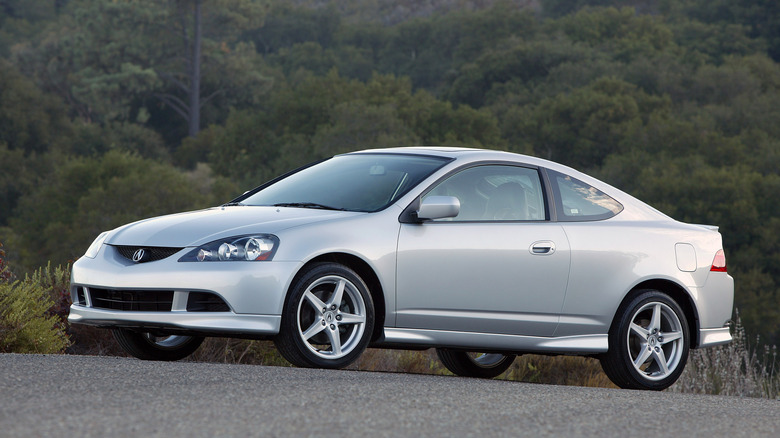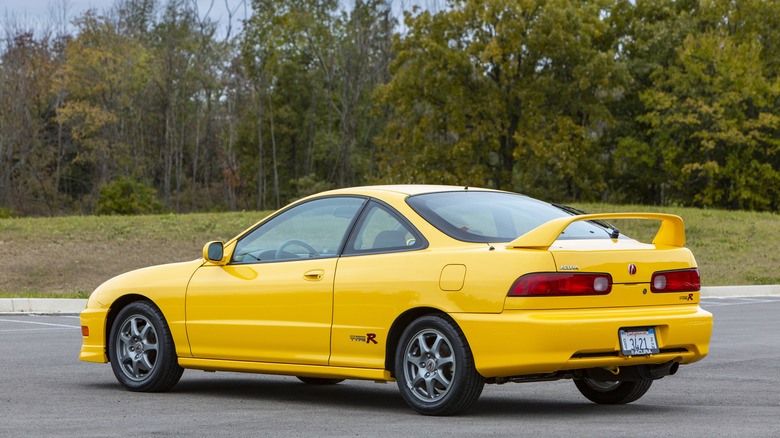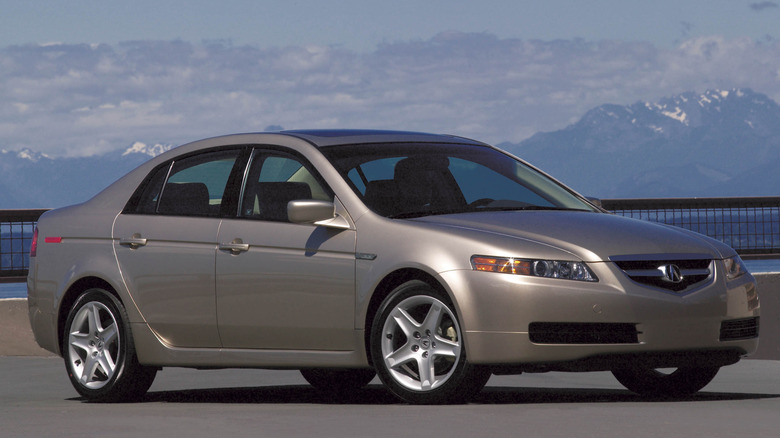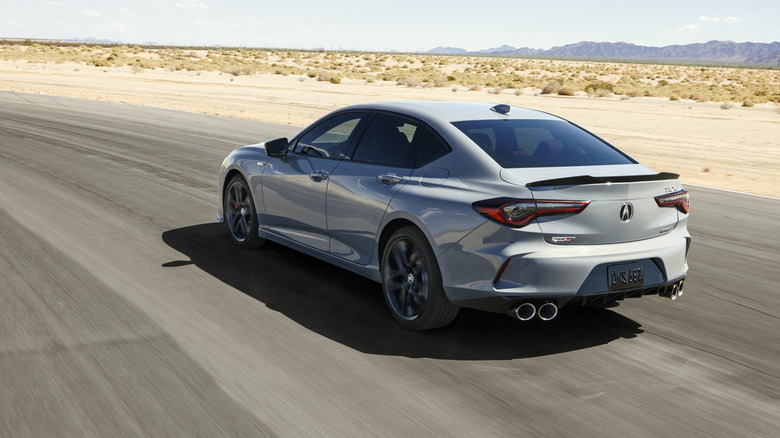Are Acuras Reliable After 100k Miles? What Drivers Are Saying
Acura has been the luxury branch of Honda for over three decades, specializing in mid-budget offerings such as the TL, MDX, and ADX. Likewise, the company also boasts a history of sportiness, boasting offerings such as the American variants of the NSX, Integra, and RSX; alongside cars like the close-ratio 6-speed manual Acura TL, fitted with a potent 3.5L V6, Brembo four-piston brake calipers, limited-slip differential, and more. It's a company with plenty of experience in making both fast and luxurious cars (some more luxurious than others), but what about reliable cars?
Well, it'll come as no surprise to anyone who knows Hondas to realize that Acura is just as reliable as its parent company, with the correct maintenance. And that's expected, considering the two share almost identical powertrains and features, just with a more luxury-oriented spin on Acura-branded models. That luxury didn't come at the cost of Honda's legendary reliability, however, at least not according to owners who frequently praise both new and classic Acuras for their longevity, feel, and build quality. The reputation for this reliability generally applies to most Acuras across the board, though there are some models that stand out and those that are, frankly, disappointing.
The good points about Acuras
Just a glance into almost any forum reveals owners exchanging mileage measuring challenges, seeing who has the biggest number on their odometers. Low six figures is often the baseline for a well-maintained Acura, though at that point, owners frequently cite the timing belt as a source of issues, so that'll likely need changing. However, the timing belt is considered a regular service after such a high figure has been obtained. For example, many older (and therefore higher-mileage) Nissans require a timing belt change every 48,000 miles or 60,000 kilometers, often referred to as the "60K service," same with Mitsubishi.
Newer Acura models also follow this trend, with sites like RepairPal and Consumer Reports ranking Acura favorably against competitor brands, ranked as the second and fifth-highest in reliability scores, respectively. This may change on a per-model basis, of course, with some models being inherently better or worse depending on powertrain, but there aren't any outstandingly poorly-received new model Acuras cited in any reliability study.
That said, as is the case with any vehicle, the key to unlocking an Acura's reliability rests in doing the maintenance. Thanks largely due to their Honda engines, Acuras with over 100,000 miles will almost certainly run without issues, at least according to owners, some of whom racked up multiple times that amount. But to actually get to that point requires multiple engine services to keep everything in good running order. These days, service intervals are quoted until 120,000 miles, at which point you would've changed your air filter four times and transmission fluid three times.
Are there any particularly bad Acuras?
With so many Acuras still on the road today, certainly many of them with over 100,000 miles, it's easy to fall into the trap that all Acuras are inherently reliable. Like any manufacturer, Acura has had its hits and misses. It's certainly had a lot of hits with engines and transmissions, at least according to owners of Acuras powered by engines like the K24 and J37, but those same owners would likely cite the automatic transmission TL or MDX as being frequent visitors to the shop. This is due specifically to transmission problems associated with the 5-speed automatic that came in these cars, whereas the manual is apparently fine.
Transmission failures seem to plague numerous automatic-equipped TL models, in fact, with the more modern TLX suffering from similar issues – specifically, those built within the past decade or so, citing jerkiness in traffic. Another major issue is that some Acuras, namely those equipped with the J37 engine, have a reputation for burning oil. Similarly, the J-series engines use timing belts, which require regular service at high mileage counts, generally a fairly involved and moderately expensive job.
Overall, like any manufacturer, there are always going to be cars that give the owners joy and others that bring nothing but grief. Acuras generally do the former, and are more likely than not to stand the test of time as long as they're well-maintained. But there are some needles in the haystack even today, with several models currently under investigation with major engine concerns.
Our methodology
We've scoured numerous forums, videos, and articles, both published and amateur, looking for the most consistent talking points when it comes to what makes and breaks Acura engines. Most owners cite the durability factors as the engines being "bulletproof," but we dug deeper to look at which specific engines are that way and why. We based our judgment on the responses across dozens of threads, posts, grievances, reviews, and so on to provide you with the most educated and forward pluses and minuses, based on testimonials. However, it's not foolproof; most of these reviews will feature biases in some form or another, which we've accounted for. While this serves as a guideline, always do further research into a specific car before pulling the trigger and buying it.



